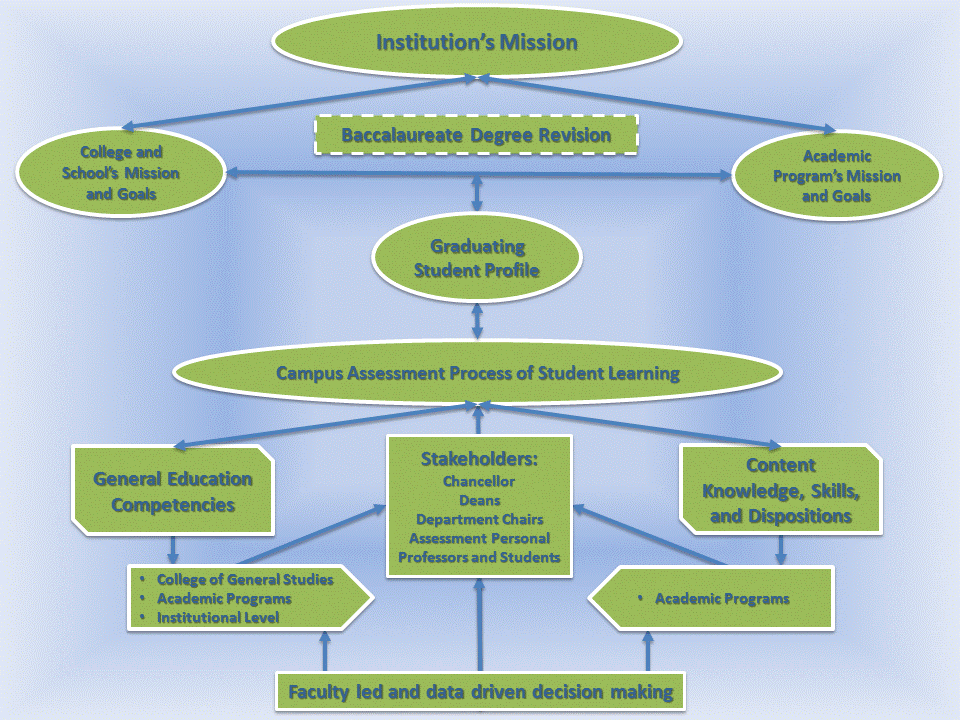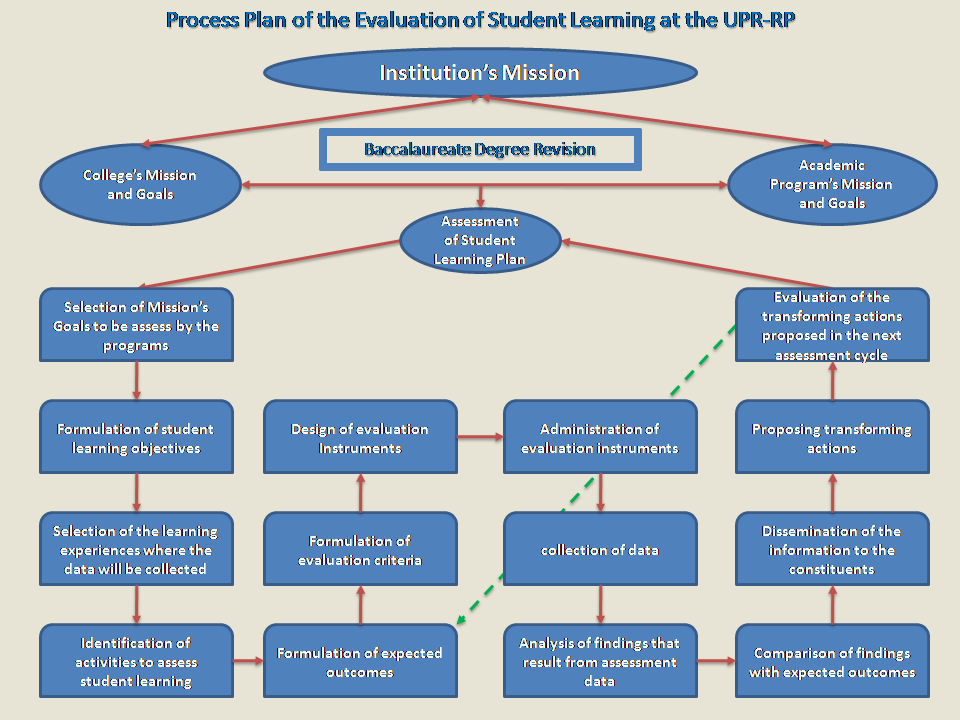As one can expect, during the first weeks of each semester there are numerous departmental meetings in which professors discuss relevant topics of their programs, such as the work plan of the semester. At the College level, a series of meetings are schedule throughout the semester with different stakeholders to oversee its progress and take appropriate action to assure the achievement of previously established goals. One such gathering is an Assessment Coordinator meeting in each College or School.
On September 12th, 2012 the Assessment Coordinators of the College of Social Sciences gathered to share their plans for the 2012-2013 academic year and discussed the continuous implementation of their assessment of student learning' processes in their academic programs. Dr. Mirla Mendez, with the assistance of Miss Angélica Colón, led the meeting with the following presentation.
On a related note, the OEAE personnel was invited by the Associate Dean of the College of Natural Sciences, Dr. Noemí Cintrón, to participate in their Assessment Coordinators Meeting on Wednesday 19th, 2012. Mr. William Estépar offered a short presentation titled "De donde vininmos, dónde estamos y hacia dónde vamos [Where we came from, where are we now, and where are we going to?]" to share the assessment of student learning precedents in our campus, the current Institution and College-wide status, and recommendations for the continuous implementation of these processes for upcoming assessment cycles.
With constant collaboration between departments, meetings such as this one promotes a shared commitment, at a College level, to improve student learning by means of sharing information of their own processes as well as providing assistance (if needed) for a successful implementation of their plans. For example, the Assessment Coordinators of the College of Natural Sciences will develop a webpage to upload assessment related materials, such as modules, sample of educational activities used, rubrics, plans, and reports to share not only with each other, but with their constituents.
We would like to congratulate Dr. Mendez, Miss Colon, and Dr. Noemí Cintrón for coordinating and leading these meeting. It is only by working together that we can find ways to achieve and maintain satisfactory levels of student learning in our campus.
Updated 21-09-2012
On September 12th, 2012 the Assessment Coordinators of the College of Social Sciences gathered to share their plans for the 2012-2013 academic year and discussed the continuous implementation of their assessment of student learning' processes in their academic programs. Dr. Mirla Mendez, with the assistance of Miss Angélica Colón, led the meeting with the following presentation.
On a related note, the OEAE personnel was invited by the Associate Dean of the College of Natural Sciences, Dr. Noemí Cintrón, to participate in their Assessment Coordinators Meeting on Wednesday 19th, 2012. Mr. William Estépar offered a short presentation titled "De donde vininmos, dónde estamos y hacia dónde vamos [Where we came from, where are we now, and where are we going to?]" to share the assessment of student learning precedents in our campus, the current Institution and College-wide status, and recommendations for the continuous implementation of these processes for upcoming assessment cycles.
With constant collaboration between departments, meetings such as this one promotes a shared commitment, at a College level, to improve student learning by means of sharing information of their own processes as well as providing assistance (if needed) for a successful implementation of their plans. For example, the Assessment Coordinators of the College of Natural Sciences will develop a webpage to upload assessment related materials, such as modules, sample of educational activities used, rubrics, plans, and reports to share not only with each other, but with their constituents.
We would like to congratulate Dr. Mendez, Miss Colon, and Dr. Noemí Cintrón for coordinating and leading these meeting. It is only by working together that we can find ways to achieve and maintain satisfactory levels of student learning in our campus.
Updated 21-09-2012



